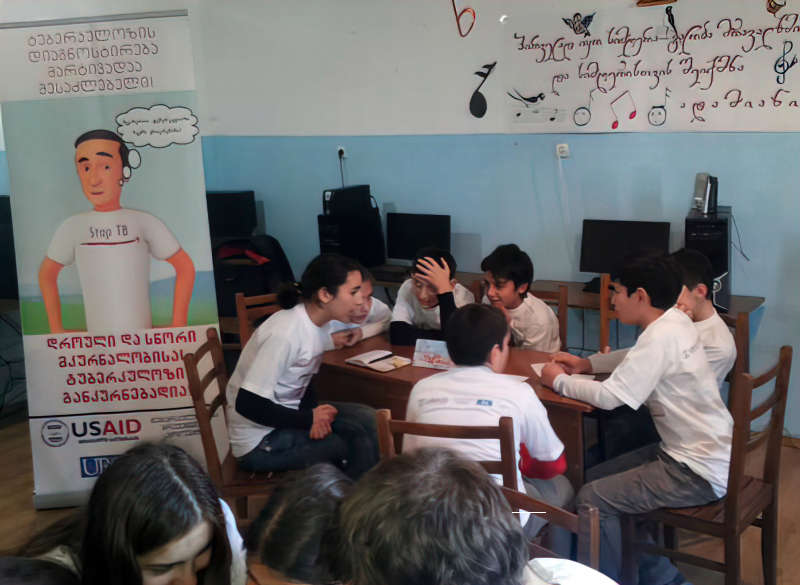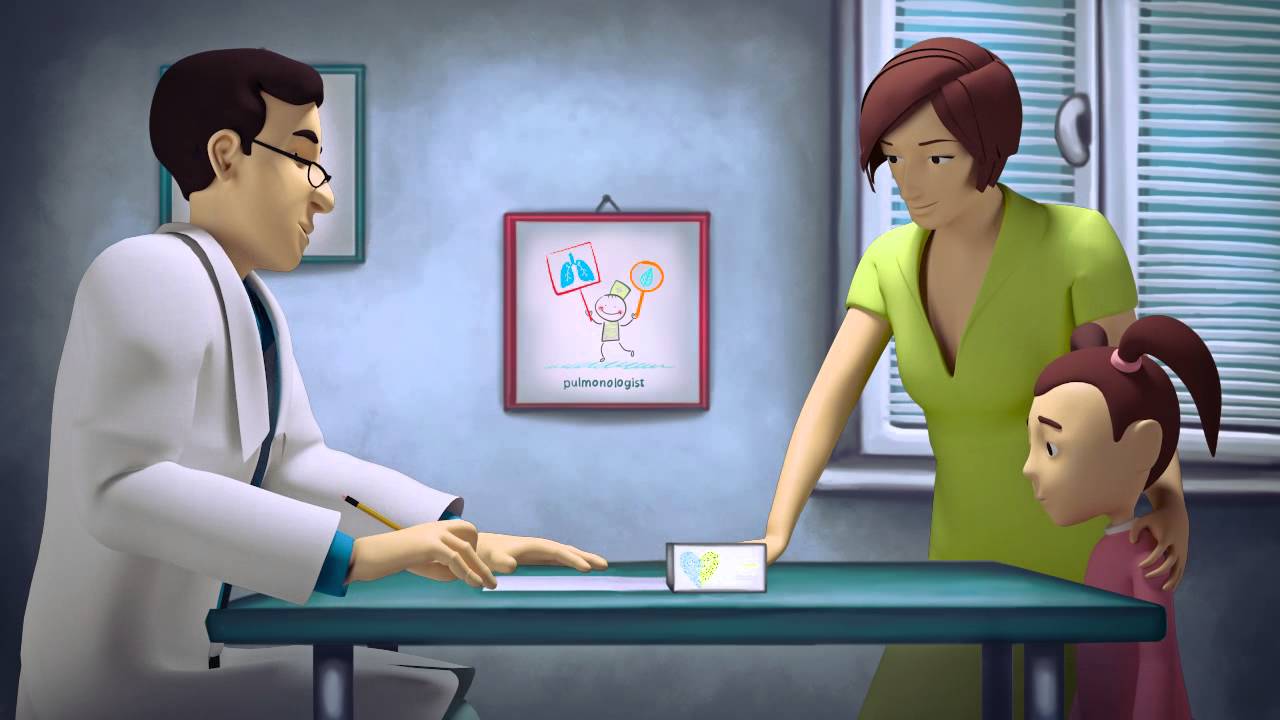Georgian students hand out TB informational materials to celebrate World TB Day. Photo credit: URC
Europe and Eurasia
Countries of Central and Eastern Europe and the former Soviet Union have faced profound challenges in the last 30 years. Human health and health systems suffered in the region as policy makers struggled with profound structural changes coupled with reduced budgets, lack of appropriately trained staff, and rising poverty levels. Existing health problems dominated by non-communicable diseases were exacerbated by heavy consumption of alcohol, tobacco, injection drug use, and increased incidence of HIV/AIDS, tuberculosis (TB), and the emergence of multidrug-resistant TB (MDR-TB).
The region has made remarkable progress in strengthening infectious disease surveillance in tandem with regional and global partners and has improved patient confidence and experience in national health services. Health system strengthening is ongoing, with priority initiatives focused on health financing to expand the reach of health services, civil society engagement to support prevention campaigns for both communicable and non-communicable diseases, and strengthened health system management and governance.

Since 1995, URC has worked in Europe and Eurasia to improve health outcomes at scale through strengthening health systems, the health workforce, delivery of integrated health services, and institutionalization of continuous quality improvement (QI) in critical areas such as maternal and newborn care and TB, HIV/AIDS, and non-communicable disease control.
Several of URC’s global projects, including the USAID Quality Assurance Projects (QAP) I, II, and III, Health Care Improvement (HCI) Project, and Applying Science to Strengthen and Improve Systems (ASSIST) Project, have carried out global and country-specific activities to support QI initiatives in the region, including in Russia, Georgia, and Ukraine. These projects supported reduced alcohol and tobacco use among pregnant women, improved the quality of health services, strengthened care coordination across the health care delivery system, and institutionalized evidence-based best practices in service delivery and more.
URC’s QI efforts made an impact. Our work in Georgia from 2011 to 2015 contributed to a 77% increase in the screening, prevention, and management of cardiovascular disease risk factors, reaching 99% coverage of the target population. The management of asthma and chronic obstructive pulmonary disease in ambulatories and hospitals similarly increased by 80%, reaching almost 100% coverage. From 2014 to 2015, the ASSIST Project increased the percentage of pregnant women screened for alcohol and tobacco use from 39% to 79%.
The HCI Project also conducted a four-country assessment of best practices in maternal and newborn care in Albania, Armenia, Georgia, and Russia. The assessment culminated in recommendations to improve routine childbirth and postpartum and complications care, as well as overall health systems strengthening for improved maternal and newborn services.
URC’s projects in the region have also supported health care reform. In Albania and Romania, URC helped governments reallocate resources to primary health services and develop primary health care models that ensured integrated, comprehensive, and accessible health services. Projects strengthened health policies, quality assurance, pharmaceutical management, and advocacy to support increased uptake of health services.
The USAID Cure Tuberculosis Project, implemented by JSI Research & Training Institute, Inc. (JSI) in partnership with URC, is a five-year initiative that assists the Kyrgyz government to diagnose, treat, and cure people with DR-TB. Cure Tuberculosis works closely with the National Tuberculosis Program under the Ministry of Health of the Kyrgyz Republic and national partners to ensure that TB services are both high-quality and accessible, especially for the hardest to reach citizens.
URC has made significant contributions to the region’s TB control efforts, including initiatives to control the spread of MDR-TB. URC’s project in Georgia strengthened TB prevention, diagnosis, and treatment, health workforce implementation of best practices in TB control, and the integration of quality assurance approaches into TB programs.
Countries
URC and IBI, A URC Company (IBI), are actively working on projects in the following countries:
Armenia
In Armenia, IBI is leading the Armenia Public Financial Management (PFM) project and is working with the Ministry of Labor and Social Affairs (MOLSA) and the National Assembly Budget Office and Standing Committee on Financial, Credit and Budget Issues to improve their budgeting processes. The project scope includes budget planning, execution, and oversight; improving systems and ensuring the budgeting process is more transparent, effective, leading to enhanced programmatic results and better services; and delivering specialized services for vulnerable groups, including children, persons with disabilities, the elderly, and domestic violence victims.
Ukraine
Visit the Ukraine page to learn more about our expertise there.



